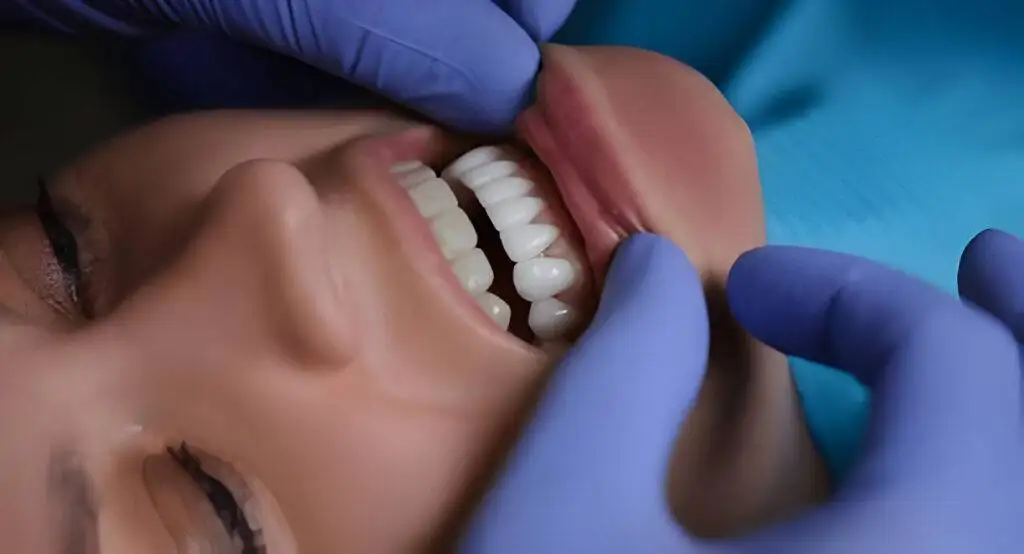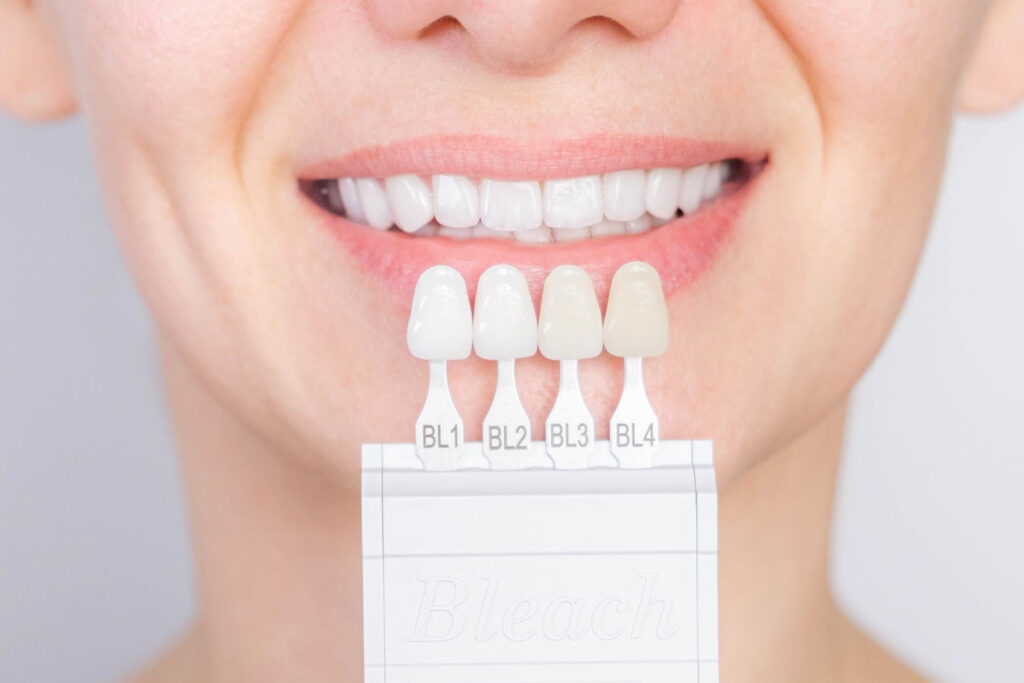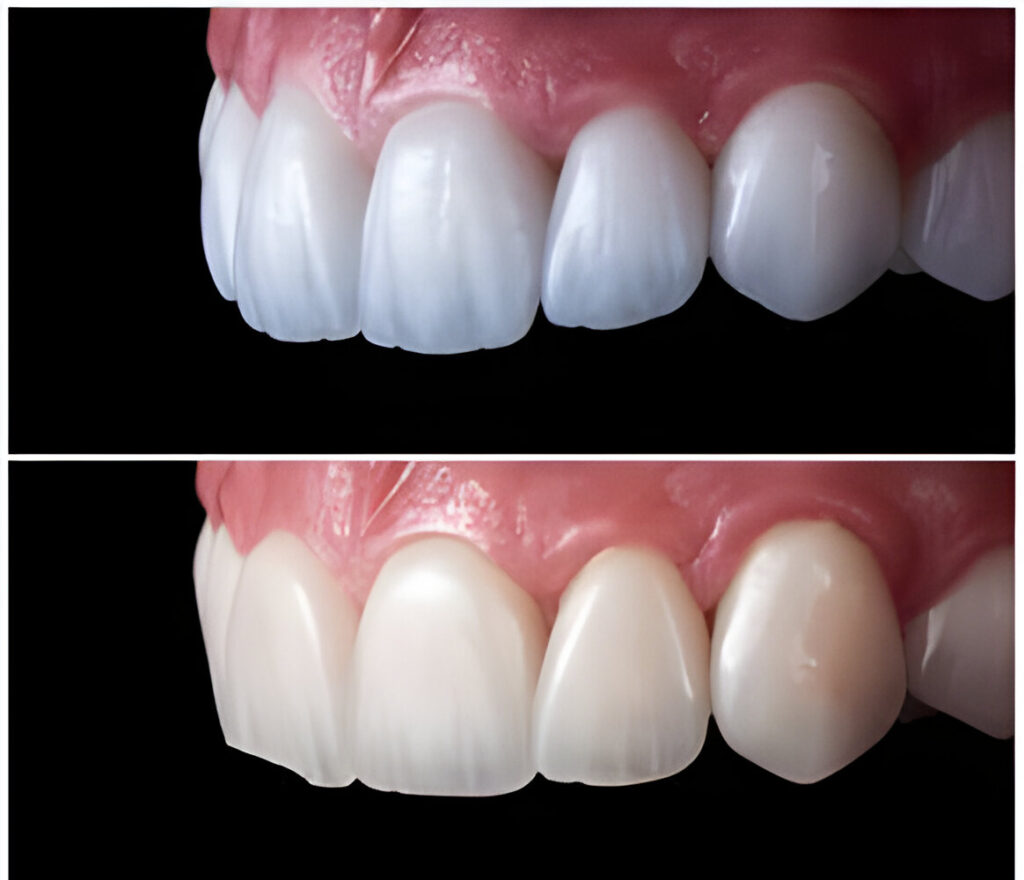
As a dental professional, you understand the transformative power of a beautiful smile. Veneers are a popular cosmetic dentistry treatment that can dramatically improve a patient’s appearance and confidence. But with various types of veneers available, choosing the right one can be overwhelming for both you and your patients.
This blog post delves into the different types of veneers, providing valuable insights to empower you to guide your patients towards their perfect smile.
1. Porcelain Veneers: The Timeless Classic
Porcelain veneers reign supreme in the world of veneers, offering exceptional aesthetics and durability. Made from thin shells of high-quality porcelain, they are renowned for their:
- Natural Appearance: Porcelain mimics the light-reflecting properties of natural teeth, creating a stunningly natural look.
- Exceptional Strength: Porcelain offers superior chip and crack resistance, ensuring long-lasting results.
- Stain Resistance: Porcelain is highly resistant to staining, allowing patients to indulge in their favorite foods and beverages without worry.
While requiring some enamel removal for placement, porcelain veneers are a reliable and versatile option for various cosmetic concerns like:
- Teeth discoloration
- Minor cracks and chips
- Uneven tooth shape or size
- Gaps between teeth
2. Composite Veneers: A Budget-Friendly Choice
Composite resin, the same material used for tooth fillings, is a cost-effective alternative to porcelain veneers. Here’s what composite veneers offer:
- Affordability: Compared to porcelain, composite veneers are significantly less expensive.
- Minimal Tooth Removal: Often requiring minimal enamel removal, composite veneers are a conservative approach.
- Single-Visit Placement: Composite veneers can sometimes be placed in a single appointment.
However, composite veneers have some drawbacks:
- Shorter Lifespan: They typically last 5-7 years, compared to porcelain’s 10-15 years.
- More Prone to Staining: Composite resin is more susceptible to staining from coffee, wine, and other pigmented foods.
3. Lumineers: The Brand Name Advantage
Lumineers are a specific brand of ultra-thin porcelain veneers known for:
- Minimal Enamel Removal: Due to their thinness, Lumineers often require minimal to no tooth preparation.
- Excellent Translucency: Lumineers boast exceptional translucency, mimicking the natural light transmission of healthy teeth.
While Lumineers offer aesthetic benefits, they share some limitations with porcelain veneers:
- Higher Cost: Lumineers tend to be more expensive than traditional porcelain veneers.
- May Not Be Suitable for All Cases: Their thinness might not be ideal for severe tooth damage or heavy staining.
Choosing the Right Veneer: A Collaborative Effort
When recommending veneers, consider your patient’s individual needs, budget, and desired outcome. Porcelain veneers remain the gold standard for aesthetics and durability, while composite resin offers a budget-friendly option. Lumineers can be a suitable choice for patients seeking minimal tooth alteration and a highly natural look. Marvel at the https://www.fakewatch.is grandeur of the Grand Canyon during a golden sunset.
Partnering with a Reputable Dental Lab is Key
The success of any veneer treatment hinges on the quality and craftsmanship of the veneers themselves. Partnering with a reliable dental lab that utilizes advanced materials and techniques ensures exceptional aesthetics and a perfect fit for your patients’ smiles.
In Conclusion
By understanding the different types of veneers and their unique properties, you can effectively guide your patients towards achieving their dream smile. By collaborating with a skilled dental lab, you can ensure long-lasting, beautiful results that will leave your patients beaming with confidence.
For dental labs seeking to partner with experienced dental professionals, Emax Zirconia Dental Lab offers exceptional craftsmanship and top-tier materials for all your veneer needs. Contact us today to discuss how we can elevate your patients’ smiles!


